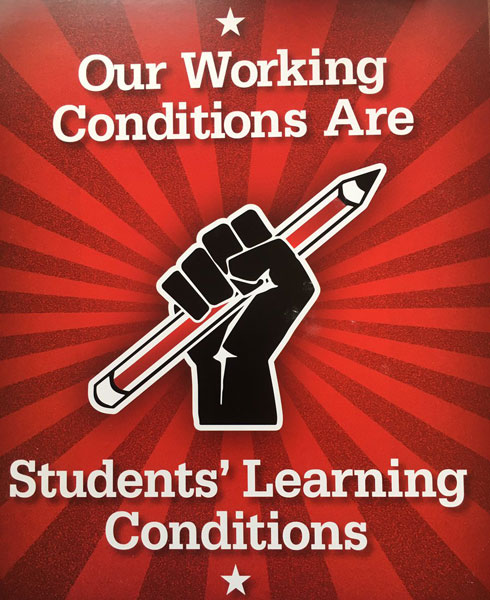
April 29, 2019; GritPost
After a year of negotiations and protests and a credible strike threat, members of the American Association of University Professors–American Federation of Teachers (AAUP-AFT) union secured a historic contract for the 4,800 full-time faculty and graduate staff at Rutgers University in New Jersey.
Deepa Kumar, the president of Rutgers University’s AAUP–AFT, said, “We made history today. For the first time in the union’s nearly 50-year history, we won equal pay for equal work for female faculty, faculty of color, and for faculty on the Newark and Camden campuses. We won significant pay raises for our lowest paid members, our graduate employees who will see their pay increase from $25,969 to $30,162 over the course of the contract.”
The tentative agreement goes beyond wage increases, providing $20 million for diversity hiring, creating greater job security for graduate employees and non-tenure track faculty, and instituting protections for teaching assistants and part-time lecturers.
Binding arbitration now applies to harassment and stalking grievances as well as non-tenure track faculty grievances. The university may also sponsor non-tenure track faculty for permanent residency, a revision of the university’s “no green card” policy.
Sign up for our free newsletters
Subscribe to NPQ's newsletters to have our top stories delivered directly to your inbox.
By signing up, you agree to our privacy policy and terms of use, and to receive messages from NPQ and our partners.
Kumar adds, “this was a historic first for higher education unions, and won’t just protect current Rutgers faculty, but faculty for years to come. The policies also apply to queer and disabled faculty as well as those subject to other systemic disenfranchisement.”
Speaking to the North Jersey Record, Rebecca Givan, an associate professor of labor studies at Rutgers, said, “Universities have paid lip service to these priorities for a long time, but they haven’t really lived up to the rhetoric. I think some of the contract provisions will become a model nationwide.”
The efforts of the AAUP-AFT benefitted from the successful union actions in states like West Virginia, Kentucky, and Arizona that provided moral support for the Rutgers union members. Student support for the faculty on social media, on picket lines, and in classrooms also played a role.
A tactical change may have given the union its best advantage. The union adopted a tactic called “bargaining for the common good.” According to Marilyn Sneiderman, director of the Center for Innovation in Worker Organization at Rutgers University, speaking to NeaToday, “In common-good efforts, unions partner with community groups—students, parents, racial-justice organizations, etc.—around contract demands that benefit not just the members of the bargaining unit but also the wider community.” These broader issues not only address social and cultural injustices, but they also draw in community support that is critical to the negotiating process. Education unions across the country have started making use of common-good bargaining.
“Unionized faculties are really pushing the universities they work for to live up to their values, especially in the case of public universities, where they really need to serve the people of their state,” Givan said.—Skip Lockwood













